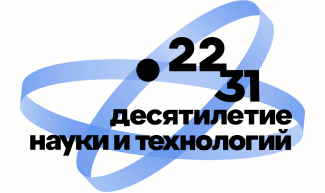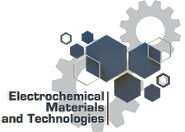Baraboshkin Aleksey Nikoalevich (1925 — 1995) Academician of Russian Academy of Sciences, Doctor of Science, director of the Institute of High-Temperature Electrochemistry (1977-1995). He was one of the leading scientists in Russian Federation and abroad in the field of high-temperature electrochemistry and physical chemistry of molten salts. He created fundamentals of general theory of metals, alloys, chemical compounds electrocrystallization in molten electrolytes. Under the leadership of Baraboshkin the kinetics and mechanisms of electrochemical reactions during phase formation were studied; their influence on the newly formed phase structure was established; the kinetics of anode and cathode processes during electrolysis in halide, oxide and mixed electrolytes was determined; several issues of chronopotentiometry for solid metals deposition in molten salts were proposed.
He evaluated the theory of current microdistribution on cathode in which the electrical conductivity of deposit, its energetic discontinuity, delayed dissociation of complex ions, presence of several ion valence forms in the melt as well as theory of current microdistribution during unsteady conditions of electrolysis and passivation of growing surface were considered.
Aleksey Nikolaevich in collaboration with his students accomplished many projects regarding the electrocrystallizaton of refractory metals deposits (tungsten, molybdenum, rhenium) and noble metals (platinum, iridium, ruthenium, rhodium, palladium, aurum), their alloys as well as uranium dioxide, the molybdenum, tungsten and vanadium oxide bronzes. The effect of ion melt nature and electrolysis conditions on composition and microstructure of deposits was found. Growth conditions of monocrystall, dendritic, powder and continual cathode deposits were defined. It was proposed that admixtures co-deposited chemically or electrochemically have the most significant impact on the cathode deposits formation.
Alexey Nikolaevich Baraboshkin established regularities of oriented deposit electrocrystallization, developed a general theory of growing textures that interlinks the axis direction of oriented deposit texture with its faceting and current distribution character. On the basis of performed investigations the foundation of technology for electrolytic deposition of refractory and platinum metals, electrolytic refining, application of heat- and corrosion resistant coatings on different metal supporters and electroforming odd-shaped parts were developed. Some of these technologies were implemented in industry.
Baraboshkin was a truly worker. In 1976 the publishing house “Nauka” issued his monograph “Electrocrystallization of metals in molten salts”. Besides this monograph he published 230 articles and obtained 62 certificates of authorship. Under his supervision 33 PhD students and 3 Doctor of Sciences were taught. His research works are widely used all over the world.
As one of the co-authors Baraboshkin was the USSR State Prize Winner (1988) for the series of works “Theoretical basis of modern high-temperature electrochemistry of molten salts”.
Aleksey Nikolaevich had a great experience in managing work: since 1962 – a head of the Lab, from 1977 till 1995 – director of the Institute of High-Temperature Electrochemistry, since 1981 – member of International Electrochemical Society, a chairman of High-Temperature Electrochemistry department of Scientific Council of UB RAS in the field of electrochemistry and corrosion; a member of the department of General and Technical Chemistry RAS; Presidium Member of UB RAS; a head of priority macro-project of the research program “Novel approaches and methods of chemical substances and materials production”; a deputy editor-in-chief of the journal “Rasplavy”; a chairperson of the State Examining Board at the Physical-Technical department of Ural State Technical University.
Baraboshkin A.N. was awarded with the Orders of the Red Banner of Labor and October Revolution for achievements in chemistry and staff training.
The Baraboshkin A.N. award for the young scientists was established.





